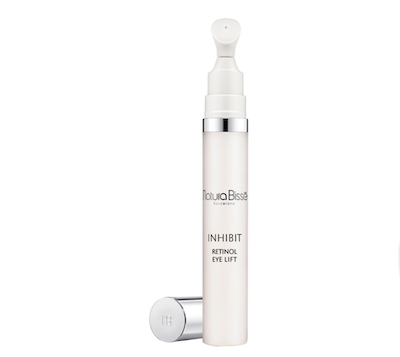There’s a lot of hype about retinol: many dermatologist consider it the “unicorn of skincare” for its magical properties. This elixir of youth is said to fix everything from fine lines and breakouts; to fading pigmentation. But what exactly is retinol and how does it work?
We go deep into the retinol ether and speak to Dr Sheila Nguyen, Medical Doctor at Beyond MediSpa at Harvey Nichols and Advanced Aesthetics Trainer at The London Academy of Aesthetic Medicine.
“Retinol is a type of retinoid which is a derivative of vitamin A,” says Nguyen. “There are three main types - vitamin A, retinol and tretinoin. Vitamin A and retinol are over-the-counter products, whilst tretinoin is prescription only in the UK. They all come in different concentrations with increasing potency. Tretinoin is the strongest and has some evidence that supports its use for conditions such as acne and ageing.”
Other types of over-the-counter retinoids include: (from weakest to strongest) retinyl palmitate, retinol, retinaldehyde or adapalene.
“Retinoids are able to get deep below the skin into the dermis where they are able to boost the production of collagen and elastin, plumping up the skin and reducing the appearance of fine lines and wrinkles,” says Nguyen.
She goes on to explain that once we reach mid-30s, our production of collagen (the protein which acts as scaffolding to the skin) and elastin (provides resilience and elasticity) starts to slow. Dead skin cells don't shed as quickly, and the turnover of new skin cells is also on the decline. This slower cell regeneration is what causes the fine wrinkles. Skin starts to look thinner, more transparent and dull.
Retinol can essentially trick your body into thinking it’s younger than it is.
Benjamin Button magic aside, over time retinol can help to even out your complexion and fade dark spots, hyperpigmentation and acne scars.
According to Nguyen it is good for treating acne, too. “Retinoids will prevent formation of comedones and control sebum. They also have a mild exfoliating effect which removes dead skin, brightening the skin. A miracle product really!”
“There are hundreds of different formulations,” says Nguyen. “When it comes to retinoids, you really need to speak to someone who understands them to be able to determine the best one for you. You need to be aware of side effects such drying/soreness and cracking skin. I’m a huge advocate of prescription strength retinoids to get consistent results.”
Nguyen’s personal favourites are from Obagi and ZO Skin Health.
If you are more cautious with skincare, you don’t need to go hardcore. Retinoids come in a range of strengths, from very low at 0.1%, to high at 2%. Start your retinol journey with the gentlest of retinoids, such as retinyl palmitate – suitable for sensitive skin, or retinol (for all other types), before gradually moving up to a higher-strength formula, if required.
Whichever retinoid you choose, they are all effective in the long run. Weaker retinoids in normal, everyday skincare products will still get the job done. Studies have shown you’ll benefit from the same long-term anti-aging effects over time, whether you use a low-strength retinoid or a moderate-strength retinoid.
This varies depending on brand, type and concentration, Nguyen explains. “You will start on several times a week working up to once a day. Expect a minimum of 6 weeks before you see noticeable results. Best results are usually around 18 weeks following consistent use.”
“This is dependent on brand, strength as well as how sensitised your skin already is,” says Nguyen.
Retinoids cause your skin to shed cells a lot faster than normal – so flakiness, dryness and irritation can be common during the adjustment period, particularly in stronger prescription retinoids.
But there are things you can do to reduce the risk, she explains: “Layering retinol or sandwiching between moisturiser can help reduce irritation, but it’s best to get professional advice on a personal routine.”
Do…
Always use SPF but ESPECIALLY if using retinoids
Generally, you should use it in the evenings
Do get advice before trying retinoids if you’ve never used it before
Do stick to reputable brands
Do use a retinoid if you want to prevent ageing
Don’t…
Don’t be afraid of flaking and tightness in stronger retinoids
Don’t give up straight away, give it some time - at least 6 weeks
Don’t use prescription strength without first seeking professional advice and ensure you see someone reputable to prescribe this for you. These are associated with the most side effects

Natura Bisse Inhibit Retinol Eye Lift (15ml, £128) uses encapsulated retinol and 4 types of hyaluronic acid ensure smoother, plumper-looking and hydrated skin. The applicator is great to massage around the eye area.
Skin Regimen Retinol Booster (25ml, £76.00) is 96.4% natural origin ingredients and uses encapsulated retinol and sylibin (a natural alternative to retinoic acid) for maximum efficacy, tolerability and bioavailability. Great for wrinkles, imperfections and an intensive renewing action.
.png)
Murad Retinol Youth Renewal Serum (30ml, £78) uses clever three-part retinol technology - a fast-acting retinoid, a time-released retinol and a retinol booster – for maximum collagen boosting. Bye-bye wrinkles.

The Ordinary Granactive Retinoid 2% in Squalane (30ml, £7.80) is great for dipping your toe (or face) into the world of retinoids. Not only is the serum high-strength (2% concentration of Granactive Retinoid), it offers low irritation and an affordable price. There is also a higher strength formulation in the range at 5%.

ZO Skinhealth Retinol Skin Brightener 1% (50ml, £96) is not for the faint hearted. This formula should be used under the supervision of a dermatologist. The long-term results, however, are said to be worth any irritation and peeling.

Scarlet Spy
27th April 2021
Spy Likes:
Nature-inspired spas, cold water plunges, sound baths, deep tissue massage, delicious food.
Spy Dislikes:
Thin walls in treatment rooms, lounger hoggers, soggy robes, bright lights.
